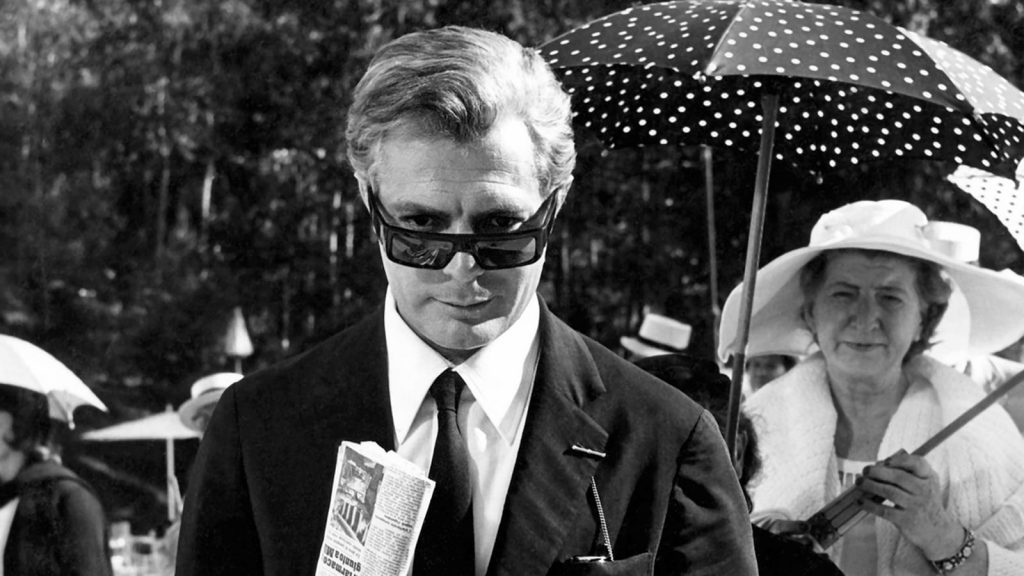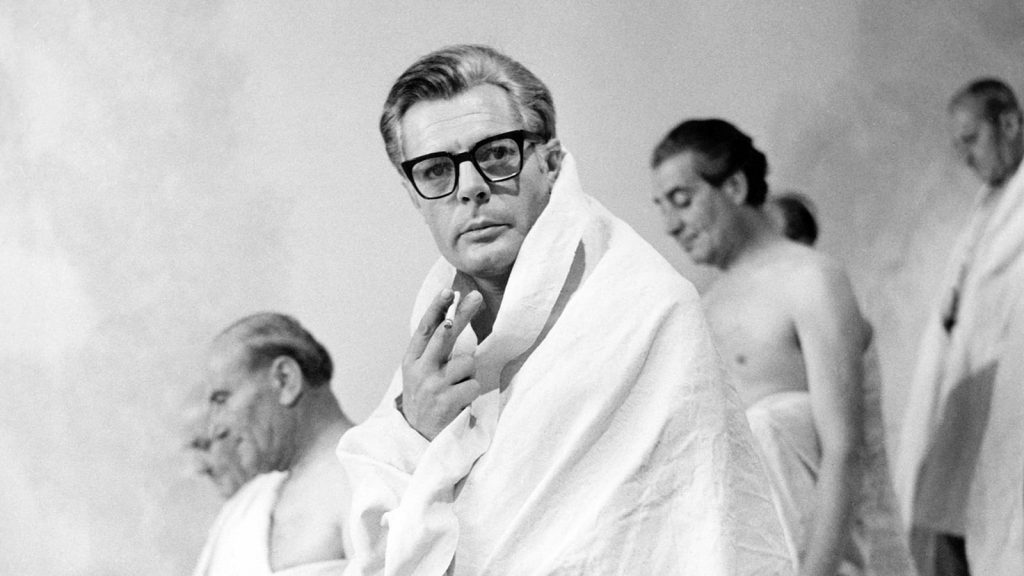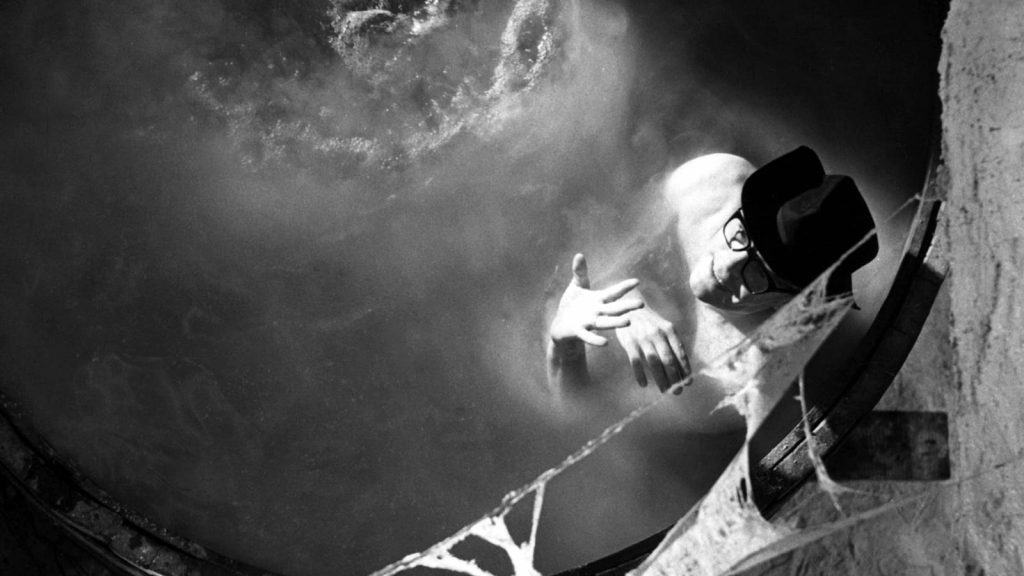Film Review: 8 ½ (1963)



Of Italian director Frederico Fellini’s Avante Garde exploration of his own psyche and creative process, Roger Ebert wrote in 2000 that “8 1/2 is the best film ever made about filmmaking.” After first reading this analysis some years ago, I remember thinking “How can this be true?” Now, after a recent screening and some rudimentary analysis of my own, my tune has eagerly changed to “Of course it is!”

Pretentious self-reflection that exists only to bolster an egotistical artist is both transparent in its intentions and utterly boring. Cinema is often (it could be argued, always) self-indulgent, but it takes a certain amount of audacity to make a film about your own shortcomings and moral failings. In addition, 8 ½ can easily be seen as Fellini’s declaration of independence from conventional filmmaking – a statement asserting that he will no longer adhere to formulaic and obsolete norms common in an ever-evolving medium. The opening minutes of the film certainly suggest this, and are reinforced over and over again through surreal dream sequences and hallucinatory flashbacks.

Fellini uses a stand-in for himself named Guido Anselmi (played to near-perfection by Marcello Mastroianni), a filmmaker suffering from “director’s block.” After a string of successful films, Guido finds himself on the verge of crisis as his new project crumbles around him. His problem? He has no idea what his film is about, and he’s not sure he even cares. With his budget ballooning – not to mention a giant and ever-growing set-piece – and his hangers-on pleading with him about the script, the cast, and everything else, Guido becomes more and more disillusioned with himself, his art, and his life.

His personal life is also in shambles. Guido inexplicably invites his wife and his mistress (Anouk Aimée and Sandra Milo) to the same spa where he’s meant to be relaxing and recovering from exhaustion (good luck, everyone from the production is also there, hounding him constantly), forcing him to confront his infidelity, his integrity, and his potential frailties. It’s easy to see the confusion and hopelessness in Guido’s eyes as he navigates an increasingly hectic situation with no foreseeable way out other than career-ending resignation.

While not quite as bizarre or unearthly as the films of Buñuel or Cocteau (and later Lynch or Jodorowsky, even Tarantino, perhaps), 8 ½ remains a seminar on how to evoke emotion through disparate moving images. Silence is used as evocatively as gaudy soundscapes and dreams are as real as “reality” with beautiful absurdities bleeding into both. Through the clever use of fantasy, Fellini tackles his own chauvinism through an ahead-of-its-time patriarchy-smashing dream sequence in which the women of his life rebel in glorious fashion. So-called morality finds its way onto the chopping block as well with bawdy flashbacks rife with adolescent curiosity and guilt-laden Catholic hypocrisy. Fellini’s mixture of oddity and authenticity works so well, you’ll find elements of them in nearly every dream sequence filmed since.

The influence of 8 ½ is endless but it’s also philosophically layered and entertaining as hell. Guido (and by extension Fellini) is full to the brim with fallibilities, but as with any human short of evil, he has redemption a the tip of his fingers if he can just get over himself long enough to grasp it. As is typical of stories written by men, this process of artistic salvation is helped by the appearance of a beautiful younger woman (Claudia Cardinale). However, refreshingly, it’s his rejection by this muse that helps put him in his place. He is not the center of the universe, even if he is the center of his own mind and his films.
Italy, France • 1963 • 138 minutes • Black & White • 1.85:1 • English, French, Italian, German • Spine #140
- High-definition digital transfer of restored film elements, with uncompressed monaural soundtrack on Blu-ray edition
- Introduction by filmmaker Terry Gilliam
- Audio commentary featuring film critic and Fellini friend Gideon Bachmann and NYU film professor Antonio Monda
- High-definition digital transfer of a new restoration of Fellini: A Director’s Notebook, a 52-minute film by Federico Fellini
- The Last Sequence, a new 52-minute documentary on Fellini’s lost alternate ending for 8½ (Blu-ray only)
- Nino Rota: Between Cinema and Concert, a compelling 48-minute documentary about Fellini’s longtime composer
- Interviews with actress Sandra Milo, director Lina Wertmüller, and cinematographer Vittorio Storaro
- Rare photographs from Bachmann’s collection
- Gallery of behind-the-scenes and production photos
- U.S. theatrical trailer
- New and improved English subtitle translation
- PLUS: A booklet featuring writings by Fellini and essays by critics Tullio Kezich and Alexander Sesonske
